Related Research Articles

Mary Elizabeth Braddon was an English popular novelist of the Victorian era. She is best known for her 1862 sensation novel Lady Audley's Secret, which has also been dramatised and filmed several times.
The Bad Seed is a 1954 novel by American writer William March, the last of his major works published before his death.
This article contains information about the literary events and publications of 1867.
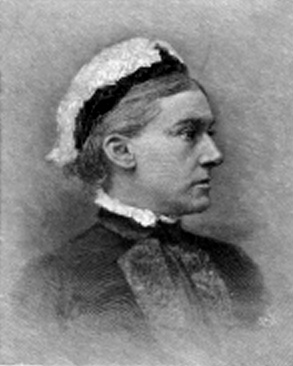
Rhoda Broughton was a Welsh novelist and short story writer. Her early novels earned a reputation for sensationalism, so that her later, stronger work tended to be neglected by critics, although she was called a queen of the circulating libraries. Her novel Dear Faustina (1897) has been noted for its homoeroticism. Her novel Lavinia (1902) depicts a seemingly "unmanly" young man, who wishes he had been born as a woman. Broughton descended from the Broughton baronets, as a granddaughter of the 8th baronet. She was a niece of Sheridan le Fanu, who helped her to start her literary career. She was a long-time friend of fellow writer Henry James and was noted for her adversarial relationship with both Lewis Carroll and Oscar Wilde.
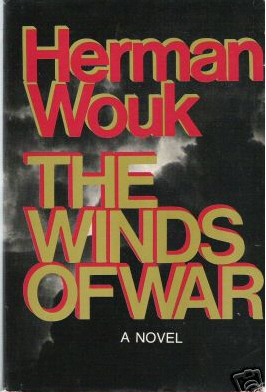
The Winds of War is Herman Wouk's second book about World War II. Published in 1971, The Winds of War was followed up seven years later by War and Remembrance; originally conceived as one volume, Wouk decided to break it into two volumes when he realized it took nearly 1,000 pages just to get to the attack on Pearl Harbor.

War and Remembrance is a novel by Herman Wouk, published in October 1978 as the sequel to Wouk's The Winds of War (1971). The Winds of War covers the period 1939 to 1941, and War and Remembrance continues the story of the extended Henry and Jastrow families from 15 December 1941 through 6 August 1945. The novel was adapted into a television mini-series, War and Remembrance, and presented on American television in 1988.

The Pale Horse is a work of detective fiction by British writer Agatha Christie, first published in the UK by the Collins Crime Club on 6 November 1961, and in the US by Dodd, Mead and Company the following year. The UK edition retailed at fifteen shillings and the US edition at $3.75. The novel features her novelist detective Ariadne Oliver as a minor character, and reflects in tone the supernatural novels of Dennis Wheatley who was then at the height of his popularity. The Pale Horse is mentioned in Revelation 6:8, where it is ridden by Death.
The sensation novel, also sensation fiction, was a literary genre of fiction that achieved peak popularity in Great Britain in the 1860s and 1870s, centering taboo material shocking to its readers as a means of musing on contemporary social anxieties.

A Sensation Novel is a comic musical play in three acts written by the dramatist W. S. Gilbert, with music composed by Thomas German Reed. It was first performed on 31 January 1871 at the Royal Gallery of Illustration. Only four of German Reed's songs survive. Nearly 25 years later, the music was rewritten and published by Florian Pascal. The story concerns an author suffering from writer's block who finds that the characters in his novel are dissatisfied.
This is a selected list of W. S. Gilbert's works, including all that have their own Wikipedia articles. For a complete list of Gilbert's dramatic works, see List of W. S. Gilbert dramatic works.

Josslyn Victor Hay, 22nd Earl of Erroll was a British peer and a member of the British Union of Fascists, known for the unsolved case surrounding his murder and the sensation it caused during wartime in Britain.
Events from the year 1867 in the United Kingdom.
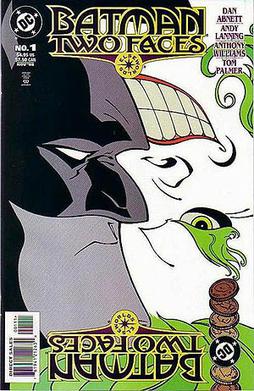
Batman: Two Faces is a DC Comics Elseworlds comic book, published in 1998. Written by Dan Abnett and Andy Lanning, with art by Anthony Williams and Tom Palmer, the story is based on the novel Strange Case of Dr. Jekyll and Mr. Hyde by Robert Louis Stevenson. A Victorian-era Bruce Wayne tries to purge both his own evil side and that of Two-Face, while a serial killer named the Joker roams the streets. A sequel, The Superman Monster, was published in October the following year.
Belinda is a common female first name.

The Family Herald: A Domestic Magazine of Useful Information & Amusement (1843–1940) was a weekly story paper launched by George Biggs in 1842, and re-established in May 1843 with James Elishama Smith and mechanised printing. By 1855 it had a circulation of 300,000.
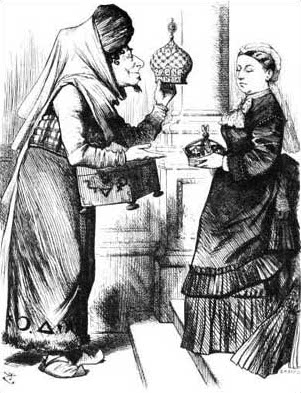
Queen Victoria has been portrayed or referenced many times.
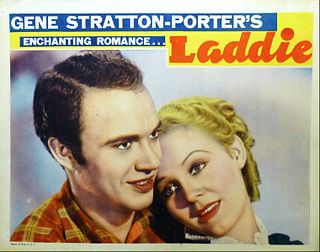
Laddie is a 1935 American comedy-drama film directed by George Stevens from a screenplay by Ray Harris and Dorothy Yost, based on the 1913 novel, Laddie: A True Blue Story, by Gene Stratton-Porter. The film stars John Beal, Gloria Stuart, and Virginia Weidler.

Mary Cecil Hay was a British novelist. Her work was often serialised and appeared in periodicals and weeklies in the UK, America and Australia.
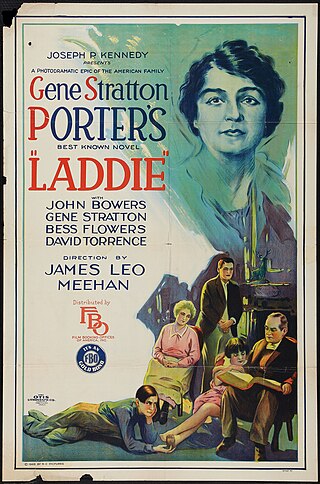
Laddie is a 1926 American silent drama film directed by James Leo Meehan with John Bowers in the title role. It was based on Gene Stratton-Porter's novel, Laddie, A True Blue Story (1913).
References
- ↑ Broughton, Rhoda; Gilbert, Pamela K. (2010). Cometh Up as a Flower. Peterborough, Ontario, Canada: Broadview editions. p. 9. ISBN 978-1-55111-805-5.